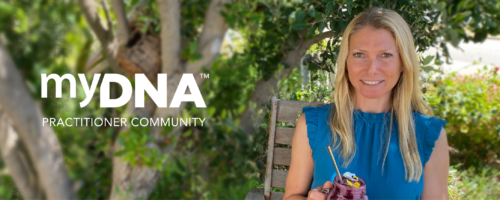Cancer is a complex and multifactorial disease that arises from the accumulation of DNA damage in a single abnormal cell. Both genetic predispositions and lifestyle factors such as diet, environment, and physical activity contribute to the likelihood of developing cancer. While lifestyle choices play a role in mitigating risk, genetics can provide deeper insights into an individual’s susceptibility to cancer. This article explores the importance of DNA analysis in identifying cancer predispositions and the key single nucleotide polymorphisms (SNPs) involved, with a particular focus on how practitioners can integrate genetic testing and counseling services into patient care.
The Significance of Genetic Testing for Cancer Predisposition
Genetic testing offers a powerful tool for assessing an individual’s risk for developing certain cancers. By identifying specific SNPs that correlate with cancer susceptibility, practitioners can help patients understand their risk profile. It’s important to emphasize that while these SNPs may show correlations, they do not imply causation. Instead, they provide information that can guide both preventative strategies and lifestyle interventions.
Moreover, DNA analysis can also support personalized nutrition plans to assist the body in combating cancer, particularly for patients undergoing chemotherapy. Nutrigenomic insights help practitioners recommend dietary strategies tailored to enhance immune function, improve detoxification pathways, and reduce oxidative stress—key factors that can influence both cancer progression and treatment response.
Key Genetic Variants Linked to Cancer Predisposition and Their Clinical Implications
Understanding certain genetic variants can help guide personalized cancer prevention strategies. Here’s a simplified look at some key genes involved and how practitioners can use the knowledge for targeted recommendations:
- Oxidative Stress Genes (GSTM1, GSTP1, GPX1): These genes help detoxify harmful substances and reduce oxidative stress, both important in cancer prevention. For example, the GSTM1 null variant is linked to higher risks of lung, breast, and colorectal cancers. A diet rich in cruciferous vegetables can support detoxification. Variants in GSTP1, associated with breast cancer, may benefit from antioxidant-rich foods. GPX1 variants, linked to brain cancers, emphasize the need for low-toxin environments and good antioxidant support.
- DNA Repair Genes (TP53, MLH1, GATA3): TP53 is a crucial gene that helps repair DNA and prevent cancer. Variants in TP53 can increase risks for cancers like melanoma. Nutrients like zinc, selenium, and vitamin C can support DNA repair in individuals with these variants. MLH1 and GATA3 variants are associated with colorectal cancer, where a fiber-rich diet and reducing processed meats are beneficial.
- Hormone and Metabolism Genes (ESR2, CYP2R1): ESR2 variants affect breast and prostate cancer risk, with dietary needs varying by gender. For instance, men with these variants may benefit from phytoestrogens found in foods like soy and flaxseed. CYP2R1 impacts vitamin D metabolism, which plays a role in reducing colorectal cancer risk. Ensuring optimal vitamin D levels is important for those with this variant.
These genetic insights allow practitioners to recommend personalized diet and lifestyle adjustments, enhancing cancer prevention and overall wellness.
The Role of Genetic Counseling Services
Interpreting genetic test results can be complex and overwhelming for patients. This is where genetic counseling plays a crucial role. Genetic counselors help patients understand their genetic risk for cancer, providing context for the results and exploring family history alongside lifestyle factors. These professionals ensure that patients have a full understanding of their genetic profile and the implications for
their overall health.
In cancer predisposition, genetic counselors work closely with practitioners to translate genetic insights into actionable strategies. For patients who test positive for cancer-associated SNPs, counselors can provide guidance on potential screening measures, preventative strategies, and the need for further medical evaluation.
Additionally, genetic counselors are instrumental in offering emotional support. Learning about an increased risk for cancer can be distressing, and a counselor can help patients navigate their emotions while developing a plan to manage their health proactively.
Conclusion: Leveraging Genetic Insights in Cancer Prevention and Care
Genetic testing for cancer predisposition provides a valuable opportunity for practitioners to offer personalized care tailored to a patient’s genetic profile. By understanding key SNPs like GSTM1, GPX1, TP53, and others, practitioners can recommend specific nutritional and lifestyle interventions to mitigate cancer risk. Moreover, genetic counseling services are important in helping patients interpret their results and receive the emotional support they need during this process.
As the field of nutrigenomics continues to evolve, integrating genetic insights into cancer prevention and care will enable practitioners to offer more precise, personalized recommendations that not only reduce cancer risk but also support overall wellness.






